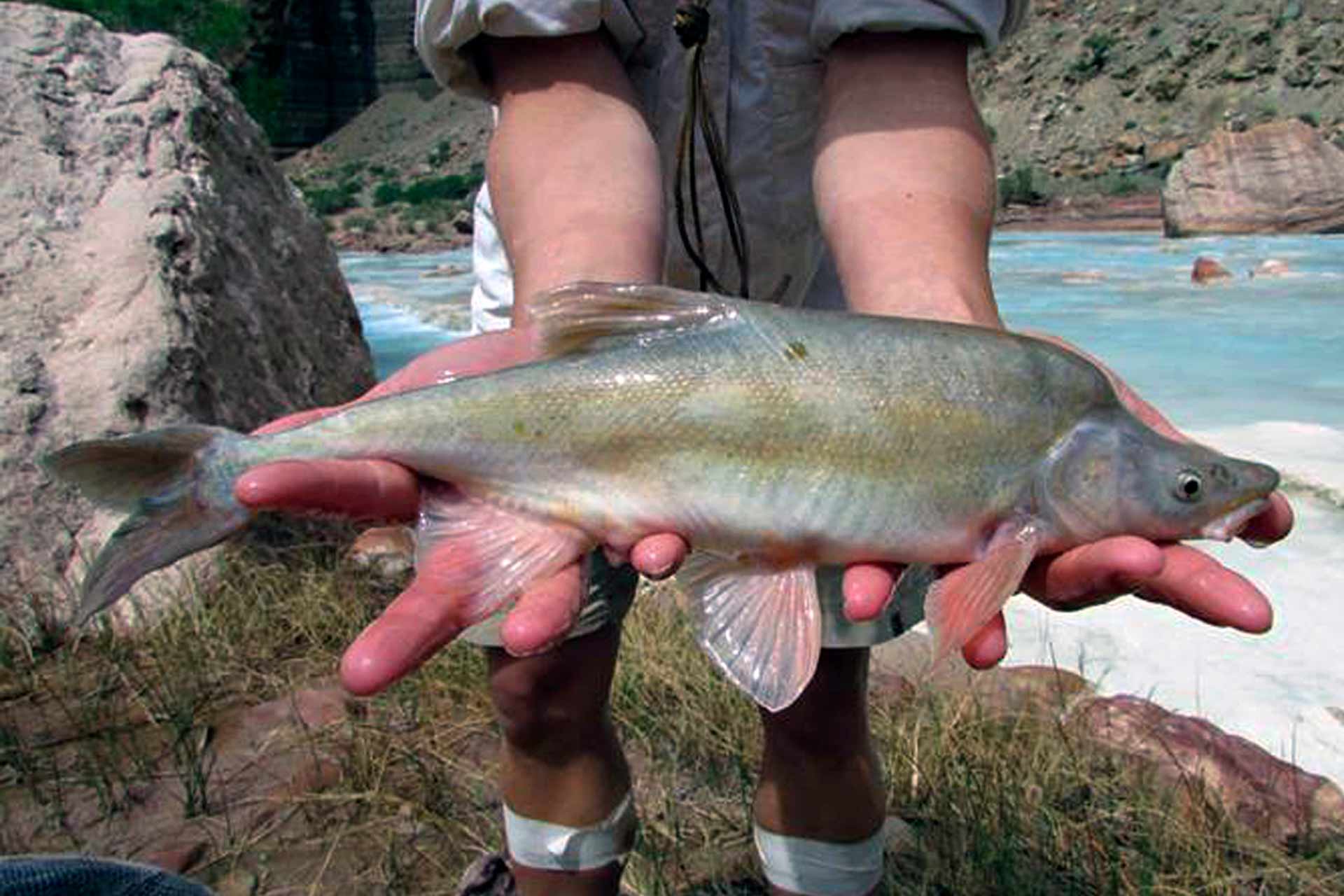 This undated photo provided by the U.S. Fish and Wildlife Service shows a humpback chub in the Colorado River basin in Grand Canyon National Park in Ariz. The U.S. Bureau of Reclamation says on Wednesday, it has wrapped up its environmental review of a plan to help the humpback chub and other protected fish in northern Arizona.
This undated photo provided by the U.S. Fish and Wildlife Service shows a humpback chub in the Colorado River basin in Grand Canyon National Park in Ariz. The U.S. Bureau of Reclamation says on Wednesday, it has wrapped up its environmental review of a plan to help the humpback chub and other protected fish in northern Arizona.
The U.S. Bureau of Reclamation has wrapped up its environmental review of a plan to help the humpback chub and other protected fish in northern Arizona, allowing the agency to release cold water from the Glen Canyon Dam to combat a warm water-loving invasive bass species that threatens the native population, it said Wednesday.
The Bureau of Reclamation said completing the environmental process allows it to use cooler water from Lake Powell to disrupt the spawning of the non-native smallmouth bass and keep it from getting established below the dam in the Grand Canyon, where it preys on federally protected native fish like the humpback chub.
It is the latest move in a battle to keep non-native smallmouth bass and green sunfish at bay in an area of the Colorado River below the Glen Canyon Dam. The predatory fish has been able to move downstream from Lake Powell as water levels have dropped and the water released from Glen Canyon Dam has warmed.
Earlier efforts to rid the area of the invasive fish have employed a chemical treatment that is lethal to fish but approved by federal environmental regulators.
The Bureau of Reclamation is a federal agency under the U.S. Department of the Interior. It is a leading wholesale supplier of the nation's water and producer of its hydroelectric power.

By submitting your comments, you hereby give AZPM the right to post your comments and potentially use them in any other form of media operated by this institution.